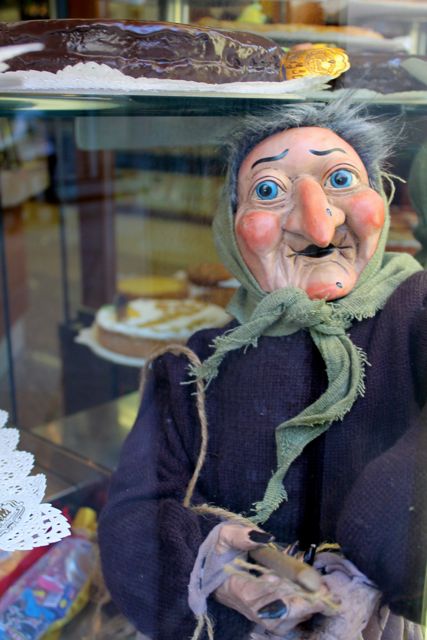Befana, Italy's friendly Christmas Witch
On 2nd January in many countries, everybody returns reluctantly to work with slightly larger stomachs and a handful of new year resolutions but in Italy, many families if possible extend their holiday until Epiphany. 12th Night for many signifies nothing more than taking down the Christmas decorations and having a good clean up to get rid of all the glitter. In Italy, for the all the children it is another chance for presents.
On the night of the 5th January Befana, the friendly old lady visits all the houses with Children to leave gifts. There are many versions of this traditional ancient fable but the one in our family goes as follows.
The three Kings or Magi leave on a long journey following a bright star to carry gifts of gold frankincense and myrrh to the new baby Jesus. On their journey across many realms, they stop at every village to ask for news of the new baby and gather new followers. In one village the Magi are drawn towards the house of an old lady who is busy baking and sweeping her path. the Magi ask for news, but she hasn't heard of this baby and refuses to join the search because she is too busy with her work. The next morning she realises her mistakes and sets off to catch up with the procession still clinging to her broom and with her freshly baked biscuits as a gift for the child. Despite her frantic efforts, she is unable to find the procession and therefore every 5th January during the night, the old lady flies around on her broom leaving gifts for the children. Her skirt is always sooty as she comes down the chimney. It is said that if the children have been naughty they get left coal instead of sweets and biscuits and indeed even today if you are naughty you might find a piece of black sugar made to look like coal instead of toys and candy.
Former generations used to write letters of apology to their parents at Christmas for the year's misdemeanors to avoid missing out on Befana treats but we modern parents are more forgiving! Do try some of the biscuits you will find in the local patisseries or bread shops sprinkled with coloured hundreds and thousands perhaps they are the same recipe that Befana herself used all those thousands of years ago.
You might just wonder where Befana got her name. Befana is a corruption of the ancient Greek name ἐπιφάνεια, epifáneia, which means the manifestation of Christ to the Three Magis.








Buona epifania! Ciao, Arianna
ReplyDeleteGrazie Arianna, Auguri anche a te.
ReplyDelete